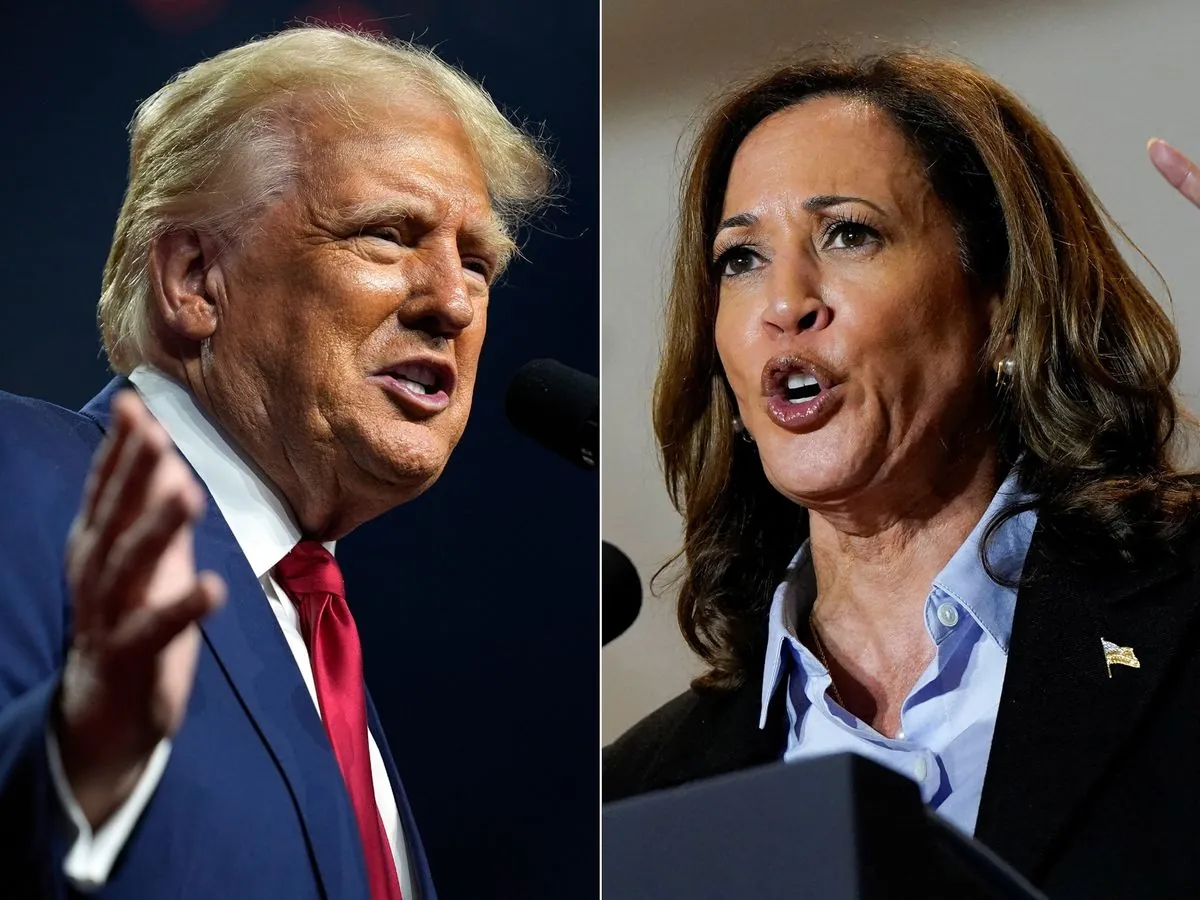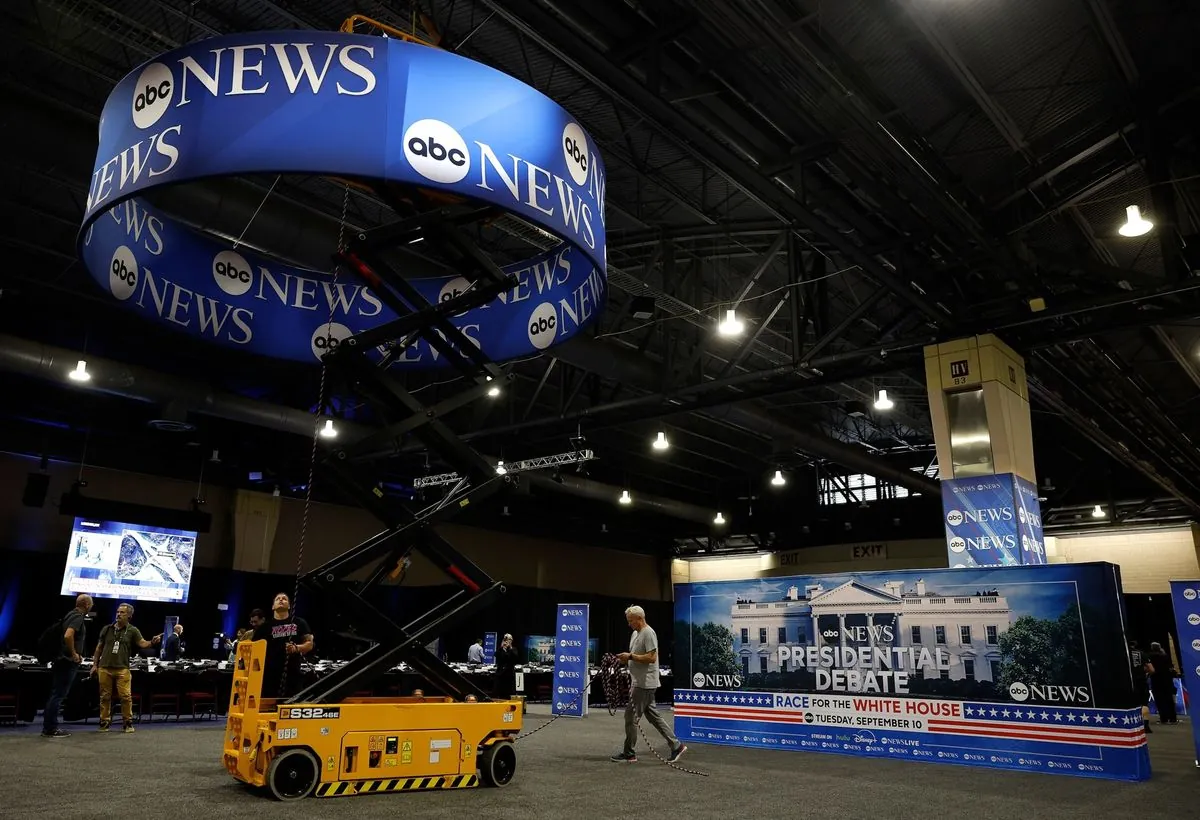Harris and Trump Set for Crucial Philadelphia Debate Amid Campaign Shifts
Vice President Kamala Harris and former President Donald Trump prepare for a pivotal debate in Philadelphia, showcasing stark policy contrasts. Recent campaign changes and Trump's election rhetoric add tension to the event.

As the 2024 U.S. presidential election approaches, Vice President Kamala Harris and former President Donald Trump are set to face off in a crucial debate in Philadelphia tonight. This event, scheduled for 9 p.m. Eastern, marks a significant milestone in a campaign that has undergone dramatic changes since the last debate in June.
The political landscape has shifted considerably over the past three months. President Biden's unexpected withdrawal from the race, Trump's reported survival of an assassination attempt, and the selection of running mates by both camps have reshaped the electoral narrative.

This debate holds particular significance as it represents the first time Harris and Trump will directly confront each other on a national stage. The event's importance is underscored by its historical context. Since the first televised presidential debate between John F. Kennedy and Richard Nixon in 1960, these forums have played a crucial role in shaping public opinion and election outcomes.
The candidates are expected to present contrasting visions for America's future. Harris, stepping into the role of Democratic nominee, has pledged to chart a new course while embracing many of Biden's policies. Her platform includes middle-class tax cuts, increased taxes on corporations and the wealthy, restoration of abortion rights, and aggressive action on climate change.
Trump, seeking a return to the White House, aims to build upon and expand his previous administration's policies. His agenda includes extending the 2017 tax cuts, significantly increasing tariffs, bolstering support for fossil fuels, and centralizing more power in the executive branch.
The debate's format, similar to the June event between Trump and Biden, will not include a live audience or open microphones when candidates are not speaking. This structure, established by the Commission on Presidential Debates in 1987, aims to ensure a fair and focused discussion.
"Those who cheat will be prosecuted to the fullest extent of the law should I win in November."
Trump's recent rhetoric on election integrity has raised concerns. His pledge to prosecute alleged cheaters and his call for law enforcement to monitor voter fraud have been viewed as potentially intimidating to voters and election officials.
As the candidates prepare to take the stage, the stakes could not be higher. With early voting on the horizon, this debate may be the only opportunity for voters to see Harris and Trump engage directly before the November election. The event's potential impact is reminiscent of the 1960 Kennedy-Nixon debate, which is often credited with altering the course of that election due to television's influence.
In an era of rapid information dissemination, the debate's aftermath is likely to be scrutinized extensively on social media platforms. The 2012 Obama-Romney debate set records for political engagement on Twitter, a trend that has only intensified in subsequent election cycles.
As the nation tunes in to this pivotal event, the candidates' performance could significantly influence the trajectory of the 2024 presidential race, echoing the historical importance of these debates in shaping American democracy.


































